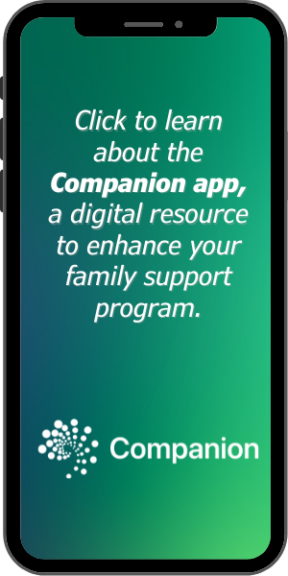
Support Systems Matter: Enhancing Treatment Outcomes for Individuals with Substance Use Disorder through Family Engagement
August 15, 2024
For individuals with substance use disorder, having the support of the key people around them – family, friends, and loved ones – can make a critical difference in the likelihood of obtaining better treatment outcomes. Alongside the positive evidence behind family support, however, there is a powerful truth: Supporting people with SUD is a complex journey, one that can be exhausting, painful, and isolating for those filling the role.
Education about addiction and how to support a loved one, connecting to key resources, and finding a caring, nonjudgmental community can help family members and friends stay strong and engaged, which, in turn, improves the odds that their loved one will fare better during and after treatment.
Overcoming Challenges to Enhance Family Support and Improve SUD Outcomes
Companion programs clearly provide benefits that can improve outcomes for individuals with SUD and offer support to families and friends. Still, there are hurdles to implementation that stand in the way. Healthcare systems across the country are understaffed, with many employees reporting that they are stretched too thin. Even if they want a companion program, they don’t have the staff to administer it.
Funding efforts typically center around individuals with SUD, not their social support networks, so finding the dollars for such a program is challenging. Most facilities also need staff trained to manage these programs, and involving the support network in therapy is considered more complex than individual and group therapy.
While research shows the positive benefits of family counseling on SUDs, the number of studies is small and doesn’t address families from diverse racial, ethnic, and cultural backgrounds. Manualized family counseling, with a specific structure and tasks to complete, has not been well-adopted for SUDs. This is largely due to the cost of licensing materials and the challenges of sustaining staff training and certification over time.
However, these barriers to implementation are not insurmountable. Wesloh said that providers who believe in the value of companion programs can use innovative approaches to achieve their goals.
Alternative sources like grants and donor donations can be considered to fund these programs. Looking for innovative solutions in the marketplace can also provide a path for launching companion programs at a lower cost and without taxing existing staff resources. Digital options, for example, don’t require additional staff or training to implement.
The Value of a Family Support Program
Providing a solution for the support networks of individuals with SUD is a positive step in improving recovery outcomes. Families and friends play a crucial role in this process, offering emotional support, fostering better treatment results, and helping reduce SUD’s impact on communities overall.
Looking for new ways to remove the barriers will make these effective tools available to more people. Considering innovative options allows facilities and providers to equip families and friends with what they need to navigate this difficult journey alongside their loved ones.
Janelle Wesloh, MBA, LADC, worked for the Hazelden Betty Ford Foundation for more than 30 years. She knows from firsthand experience how important these people are in a loved one’s recovery journey and the incredible complexities they face while trying to support them. “Substance use disorders and addiction don’t just affect the person using the substances,” she said. “There’s a great deal of collateral damage to everyone around them.”
And while they’re dealing with the trauma, community support is often nonexistent. The stigma associated with addiction isn’t reserved for the person with SUD; it extends to their loved ones. “People don’t tend to rally behind families dealing with SUD issues like they do when someone is diagnosed with cancer or other chronic illnesses,” Wesloh said.
Substance use disorders and addiction don’t just affect the person using the substances. There’s a great deal of collateral damage to everyone around them.
Janelle Wesloh, MBA, LADC
A Positive Impact on Client and Business Outcomes
Involving families, friends, and others in the recovery journey provides multiple benefits. First, Wesloh said, bringing families into the process improves the functioning of the family overall. Working together toward a common goal makes the connection tighter, and open communication helps foster understanding between members. It also aids in identifying power struggles and unhelpful patterns and behaviors, which can pave the way toward building more constructive family dynamics.
As noted above, numerous research studies reveal individuals struggling with SUD achieve better outcomes with the support of friends and family. Treatment engagement and adherence, retention rates, and days of abstinence all increase, while negative factors like heavy substance consumption, drug-related arrests, legal problems, and hospitalizations decrease. Further, the support of family and friends can help people avoid returning to substance use.
Family-based treatments are often more cost-effective than individual and mixed therapy, with fewer treatment sessions per episode of care and significantly lower costs per session. One study showed a $5 savings to society for every dollar spent on family-based treatment, lowering healthcare and juvenile justice costs, for example.
For clinics and treatment centers, families who participate in a loved one’s SUD treatment become powerful advocates for the facilities and programs. Grateful family members are more inclined to refer others, donate to the facility or program, and provide data and stories that personalize marketing efforts.
Companion Programs Meet the Needs of Families, Friends
Companion programs can ensure families and friends have what they need to continue to be a source of support and strength for individuals with SUD. Programs for support networks can be integrated into various types of therapies at multiple stages, ranging from traditional family therapy to relapse prevention.
Successful programs offer valuable tools to address companions’ diverse needs, such as support groups, speakers, therapies, and educational materials. Programs can be delivered in person or virtually through digital technologies, such as CHESS Health’s Companion app, a digital source of support and resources for family members, friends, and caregivers who have loved ones struggling with SUD.
Having a community of peers to talk to who are going through the same challenges can be a great source of strength for families and friends. Whether meeting in person or chatting virtually, these communities help remove the stigma and shame that surround addiction.
“Families can chat with each other about common things that are going on and share solutions that have or haven’t worked,” Wesloh said. “It helps to get support from other people going through the same thing.”
Educational materials to grow understanding of addiction and its many stages are a critical component of companion programs. These materials can help families and friends prepare for common challenges, like when a loved one won’t seek treatment or enters treatment and then quickly wants to leave, and better understand the stages of the SUD recovery journey. Here again, digital options can be especially valuable as family members and friends can access materials and resources anytime, anywhere.

